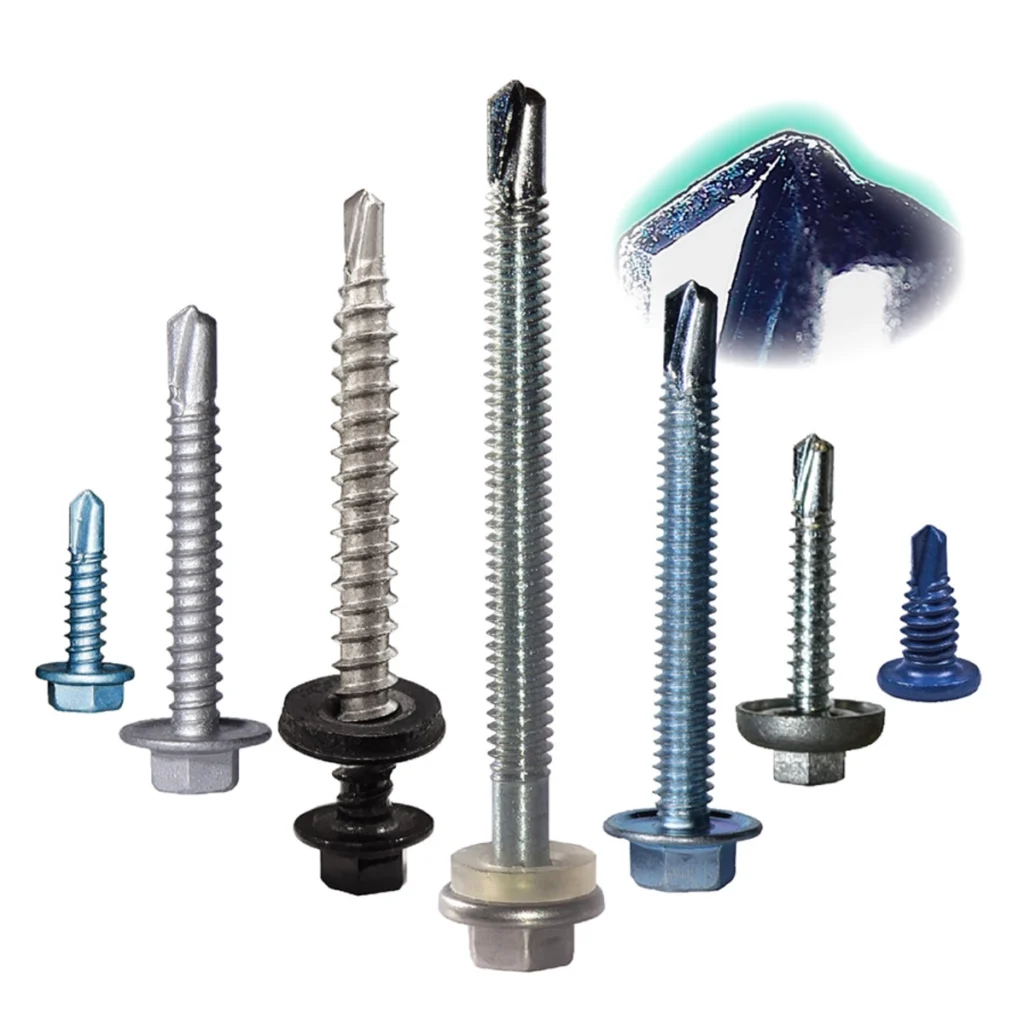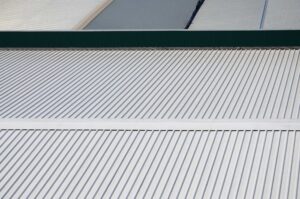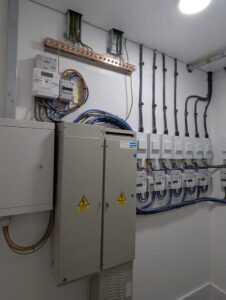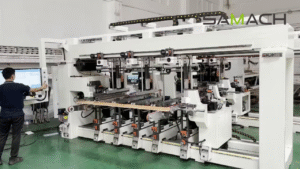
Self-drilling screws have become indispensable fasteners in modern construction and industrial applications due to their ability to drill, tap, and fasten in a single operation. Their efficiency reduces labor costs and project timelines, making them a preferred choice for steel framing, HVAC installations, and metal-to-metal fastening. However, the performance and durability of self-drilling screws depend heavily on the materials and metallurgy used in their manufacturing.
tokohasil provides an authoritative yet accessible overview of the critical factors involved in selecting materials and metallurgy for self-drilling screw production, helping industry professionals make informed choices that ensure product reliability, strength, and longevity.
Understanding Self-Drilling Screws and Their Requirements
Self-drilling screws are unique fasteners that combine a drill bit tip, threading, and a shank into one component. This design enables them to pierce tough materials—usually metal—without the need for pilot holes. As a result, they are subjected to significant mechanical stresses during installation, including torsion, shear, and axial forces.
To perform reliably, the material selection must meet several essential criteria:
- High hardness to drill through tough metals without dulling or breaking
- Sufficient toughness to resist brittleness and prevent fractures under load
- Corrosion resistance to withstand exposure in various environments
- Machinability to enable efficient manufacturing of precise threads and drill tips
Metallurgy plays a crucial role in balancing these sometimes conflicting demands through appropriate alloying, heat treatment, and surface finishing.
Common Materials Used in Self-Drilling Screw Manufacturing
1. Carbon Steel
Carbon steel is the most commonly used substrate for self-drilling screws because of its superior mechanical characteristics and affordability. Low to medium carbon steel grades provide a good balance between strength and ductility, which is essential for forming screw threads and drill tips.
Advantages: High tensile strength, good wear resistance after heat treatment, economical.
Limitations: Susceptible to corrosion unless properly coated or plated.
2. Alloy Steel
Alloy steels, containing added elements like chromium, molybdenum, and vanadium, offer significantly greater hardness and wear resistance than standard carbon steels.
Advantages: Superior toughness and durability, improved hardness for drilling performance.
3. Stainless Steel
Stainless steel is used primarily where corrosion resistance is paramount, such as in outdoor or marine environments. It has a high chromium content, which creates a protective oxide film.
Advantages: Excellent corrosion resistance, good mechanical strength.
Limitations: Lower hardness compared to carbon or alloy steels, which can reduce drilling efficiency unless specially treated.
Metallurgical Considerations: Alloying and Heat Treatment
Alloying Elements
The choice of alloying elements directly affects the mechanical and chemical properties of self-drilling screws:
Carbon (C): Boosts hardness and strength, although excessive carbon can lead to brittleness.
Chromium (Cr): Enhances corrosion resistance and hardness.
Manganese (Mn): Improves strength and toughness.
Molybdenum (Mo): Enhances durability and provides better resistance to abrasion and corrosion.
Vanadium (V): Improves grain refinement, leading to increased toughness and strength.
Optimal combinations of these elements allow manufacturers to tailor screws to specific applications, balancing hardness for drilling capability and toughness for durability.
Heat Treatment
Heat treatments such as quenching and tempering are essential for improving the hardness and durability of steel screws. Proper heat treatment ensures that the screw’s drill tip maintains sharpness and that the threaded shank is strong enough to hold loads without snapping.
Quenching: Rapid cooling from a high temperature to harden the steel.
Tempering: Reheating quenched steel to reduce brittleness while retaining hardness.
Advanced manufacturers control heat treatment parameters precisely to achieve consistent performance across production batches.
Surface Treatments and Coatings
Because corrosion can undermine screw performance and structural integrity, surface treatments are often applied to self-drilling screws to enhance resistance to rust and chemical exposure.
Zinc Plating: The most common coating, providing sacrificial protection.
Galvanizing: Thick zinc coating for outdoor and industrial environments.
Electro-Polishing: Enhances corrosion resistance and smooths surface roughness.
Specialty Coatings: Such as ceramic or PTFE, which reduce friction during installation and increase wear resistance.
Choosing the right coating depends on the installation environment and performance requirements.
electing the Right Material and Metallurgy for Your Application
When selecting materials and metallurgy for self-drilling screws, consider the following factors:
- Application Environment: Indoor vs. Outdoor conditions involving moisture, chemical exposure, or extreme temperature variations.
- Material to be Fastened/ baut mur: Thickness and hardness of metal or substrate.
- Load Requirements: Mechanical strength needed to withstand shear, tension, and vibration.
- Cost Efficiency: Balancing performance with budget constraints.
For example, structural steel framing in commercial buildings may require high-strength alloy steel screws with zinc plating for moderate corrosion resistance, while coastal or chemical processing facilities demand stainless steel screws with specialized coatings.
Conclusion
The manufacturing of reliable, high-performance self-drilling screws hinges on selecting the right materials and applying sound metallurgical practices. Carbon and alloy steels remain the backbone of most screw production, offering a strong foundation for hardness and toughness when paired with precise heat treatment. Stainless steel solutions are indispensable for corrosive environments, while coatings add an essential layer of protection.
By understanding the critical role of materials and metallurgy, manufacturers and industry professionals can ensure their self-drilling screws meet the rigorous demands of modern construction and industrial projects—delivering efficiency, safety, and durability with every fastening.





